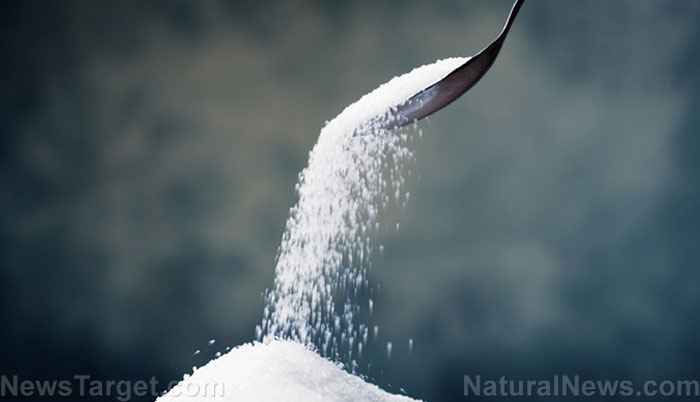![]() Home > Health
Home > Health
Can Diet Soda Kill You? Studies Show That Some People Can’t Digest Aspartame

News Target | Natural News
![]() February 14th, 2021 | 13:31 PM |
February 14th, 2021 | 13:31 PM | ![]() 360 views
360 views
NATURALNEWS
Diet soda, despite the name, is not better for you than regular soda. In fact, it can even be deadly for certain people.
Diet soda contains aspartame, an artificial sweetener that’s 200 times sweeter than table sugar. While both table sugar (or sucrose) and aspartame have the same amount of calories, manufacturers need only a small amount of the latter in sodas. This accounts for how they’re able to keep the calorie count low in diet soda.
However, consuming even small amounts of aspartame is dangerous for people with phenylketonuria (PKU). Those with PKU have a defect in the gene whose protein product breaks down phenylalanine, an amino acid found in protein. Aspartame is also converted into phenylalanine in the body. A buildup of phenylalanine can lead to serious health problems. For people with PKU, this means following a lifelong diet that limits their protein and aspartame intake.
Besides diet sodas, other foods and drinks containing aspartame include sugar-free candy, sugar-free ice cream, low-calorie yogurt, reduced-calorie fruit juice and gum.
Other health risks linked to aspartame
Aspartame has become a source of controversy in recent years because of the many health threats it reportedly poses. Listed below are three serious health issues associated with aspartame consumption:
1. Aspartame may raise the risk of obesity
Even though aspartame is typically used in foods and drinks marketed for weight loss, studies have found no evidence that sweeteners like aspartame are effective for weight management.
On the contrary, research revealed a compelling link between a significant increase in body weight and waist circumference and regular aspartame intake.
2. Aspartame affects metabolic health
According to a 2013 review of studies on artificial sweeteners, aspartame may greatly raise a person’s risk of developing metabolic diseases like Type 2 diabetes.
The review suggested that regular consumption of foods or drinks with aspartame conditions the body to no longer expect calorie intake in response to sweet tastes. Eventually, the body becomes unable to break down sugars when they arrive in the gut. This could lead to glucose intolerance and, eventually, diabetes. (Related: SODA NATION: Half of America now has type 2 diabetes or pre-diabetes.)
3. Aspartame affects appetite
Studies suggest that sweeteners like aspartame may severely raise appetite as well — sweet tastes signal to the body that food is entering the gut. The body expects to receive calories and to signal when the person should stop eating by promoting feelings of fullness.
This same process happens when a person consumes foods and drinks with sweeteners, except the body gets far fewer calories than it needs to feel full. Eventually, the body will unlearn the association between calories and sweet tastes.
If a person were to eat high-calorie foods at that point, he or she would likely have a hard time feeling full. This could make the person predisposed to overeating or snacking in between meals in the long run.
Healthy diet soda alternatives
Since artificial sweetener consumption is linked to numerous health risks, it’s better to opt for healthier drinks. Below are healthy and delicious soda alternatives:
Citrus-infused water – Infusing water with lemon or orange slices is a great way to give it flavor without using sugar.
Green tea – Serve green tea hot for a calming herbal drink or serve it cold for a tasty, zero-calorie beverage.
Vegetable juice – Blend leafy green vegetables into a healthy, nutrient-packed juice.
Oat milk – Plant-based milk substitutes like oat and almond milk make for low-calorie beverages packed with nutrients essential for bone health.
Kombucha – Kombucha is a fermented tea drink filled with probiotics that aid in digestion.
Coconut water – Unsweetened coconut water contains electrolytes that keep you hydrated.
Source:
courtesy of NATURALNEWS
by Divina Ramirez
If you have any stories or news that you would like to share with the global online community, please feel free to share it with us by contacting us directly at [email protected]